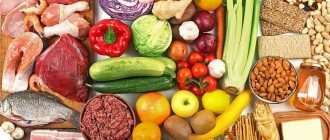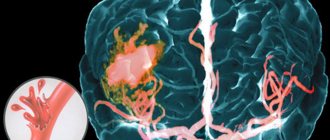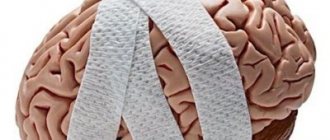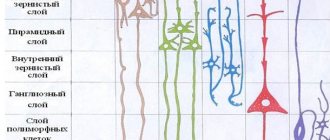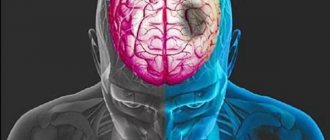If you purposefully compose a diet from certain foods, then it is quite possible to improve memory, increase concentration, facilitate and speed up mental work, and simply improve your well-being.
Research points to an undeniable link between the food we eat and how efficiently our brains work.
Other studies confirm that eating certain foods stimulates the production of serotonin, dopamine, norepinephrine and other neurotransmitters.
Thus, if you take care of constant nutrition, which will be beneficial for the human brain, then you can not only get rid of fatigue and chronic fatigue, but also begin to get enough sleep quickly, add large numbers in your mind, remember a large amount of important information and, most importantly, prevent many severe diseases associated with aging of brain cells.
In this article we will talk about the general principles of such nutrition, as well as what specific foods should be included in the diet, giving a list of the 20 best.
Nuts and seeds
Everyone knows that to speed up the work of the mental organ, you need to eat walnuts. These nuts contain zinc, potassium, calcium, magnesium, iron and phosphorus. It is these substances that make up the human brain. This is why they are so good to eat. They also contain various vitamins that speed up the process of brain activity.
Brazil nuts contain a large amount of selenium, which has a beneficial effect on the thinking organ. This is the fattest nut.
Pumpkin seeds and sunflower seeds contain zinc, acids, vitamins A and B. All this reduces body fatigue.
The daily portion for the brain, which has a beneficial effect on activity, is thirty to fifty grams.
to contents ^
Why do we want something harmful so much?
Why does the brain “ask” for junk food? The main reason for this is the widespread use of food flavoring additives, such as monosodium glutamate .
They do not provide any nutritional value to the human body, but they irritate the taste buds, creating an imitation of excellent taste. Initially, they were discovered only at the beginning of the 20th century, but at the moment about 200 thousand tons of the same monosodium glutamate are consumed annually.
But fatty meats, sweet yoghurts, pastries - all of this is perceived by the body as a balanced source of fats, proteins and carbohydrates, which also plays an important role in provoking the desire to eat a dish. And this is quite actively used by large manufacturers of ready-made semi-finished products, focusing not on the needs of the buyer, but on the physiology of the brain. And that is why homemade yoghurts and cakes are all considered less tasty by many.
The flavoring additives themselves practically do not harm the human body. But meals high in fat and sugar have a negative impact on the functioning of the cardiovascular system and brain.
Gifts from the sea
It has been scientifically proven that the brain consists of many neurons. If the amount of cholesterol in the body goes off scale, neurons begin to slow down brain activity. To prevent this from happening, it is necessary to consume Omega-3 amino acids.
To do this, you definitely need to eat seafood:
- oysters - scientific research has proven that this food is very useful for the brain, regardless of age. This is because oyster meat is a source of the best elements for quick thinking and the ability to easily perceive various facts. These elements are called zinc and iron;
- salmon and salmon , they also contain Omega-3 and eight amino acids. According to scientists, eating even one serving of red fish per day can reduce the risk of Alzheimer's disease;
- tuna , in civilized countries, is on the list of necessary dishes; it should be eaten at least once a week. Its meat contains phosphorus and iodine, which give clarity to the brain.
Useful to know: Concussion: first symptoms
to contents ^
Berries that are good for the brain
Almost all berries are considered healthy food for the functioning of the thinking organ. But blueberries, blackberries and raspberries are especially popular.
Blueberries are in the top three for a reason. It increases learning ability and improves motor skills.
In addition, it perfectly improves visual acuity. It is enough to consume blueberries just once a day for them to be beneficial for the brain.
Raspberries and blackberries are also full of antioxidants, they prevent cell aging, and also speed up the thought process and have a beneficial effect on memory.
to contents ^
Carbohydrates for the central nervous system
If proteins are the building material for neurons and the substrate for the synthesis of neurotransmitters, then carbohydrates are the energy base. One of the final monosaccharides that is formed during the breakdown of complex carbohydrates is glucose. It is necessary for the brain to obtain energy. For this reason, carbohydrates must be present in the diet, but in reasonable quantities.
However, professor-neurologist from the USA David Perlmutter does not agree with this official opinion of nutritionists and dietitians. He believes that the human body does not need carbohydrates at all. And there is a good explanation for this: metabolism is designed in such a way that, in conditions of a shortage of available carbohydrates, the body can independently synthesize them from existing reserves of fats and proteins. This chemical process is called gluconeogenesis.
David Perlmutter suggests limiting the consumption of carbohydrate foods as much as possible, because he believes that they “kill” the brain. Whether to agree with this opinion or not is a personal matter for everyone, because it has not yet been scientifically proven. Official medicine believes that it is necessary to take carbohydrates with food.
Healthy carbohydrates recognized by nutritionists today include sugars contained in:
- vegetables (asparagus, tomatoes, sweet peppers, zucchini);
- greens (green salad, onions, parsley, dill);
- moderately sweet or unsweetened fruits (apples, lemons, avocados);
- berries (strawberries, raspberries, blackberries, blueberries, cranberries).
Vegetables, fruits and berries are also useful for their high content of non-starchy polysaccharides, the so-called ballast compounds (fiber, pectin), which normalize intestinal motility, adsorb harmful and toxic substances in its lumen, and restore intestinal microflora. The dark-colored berries are rich in antioxidants, which protect lipids in cell walls from peroxidation and free radical damage.
Vegetables to the rescue
Vegetables are foods that are essential for nourishing the brain.
Carrots are a real storehouse of vitamins. Contains luteolin in excess, which is necessary to reduce age-related memory loss and to reduce the risk of inflammatory diseases of cortical cells. Almost everyone also knows that carrots contain carotene, which improves vision.
One vegetable or 200 grams of juice is enough to nourish the body with useful substances.
Beetroot, this vegetable is enriched with all the elements that bring the best to our body: iron, iodine, glucose. Doctors recommend eating no more than 150 grams per day, both raw and cooked. But beet juice is better mixed with some other juice.
Cabbage and spinach.
What else is needed for the rapid activity of the human brain?
These vegetables contain vitamins B6 and B12, folic acid, and a lot of iron. Children, as a rule, do not like these vegetables. But when they grow up and find out what a healthy food it is, they will thank you very much.
to contents ^
Fruits are a storehouse of vitamins
Pears, apples, apricots are the healthiest fruit products. They possess the most important element for the human brain - iron.
Good to know: Anticonvulsant pills for epilepsy
Iron helps supply our brain with oxygen, which improves mental clarity. You need to consume at least 300 grams of fruit per day.
to contents ^
Features of the diet for a child
For the normal development of a child’s body, products from the list are required, which are necessary for the development and stimulation of full-fledged brain function. Except for some nuances.
- The diet of a child or teenager should contain more protein foods: white lean meat. fish, seafood.
- To compile a children's menu, spicy and hot seasonings are used somewhat less, focusing on the age and taste preferences of the child.
- Red wine is excluded, since ethanol in its composition is contraindicated for children.
Egg yolk
During aging, cells in the cortex of the thinking organ slowly die off. This is an inevitable process, but you can slow it down with the help of egg yolk. It contains a strengthening element - choline, which is like a strong foundation for our brain cells. It also improves memory.
The yolks contain lutein, an ingredient that reduces the possibility of heart attacks and strokes. An important element in egg yolks is lecithin, which fights free radicals and slows down aging.
But remember, you can’t overuse eggs. Everything is good in moderation. One or two eggs a day will be enough.
to contents ^
bitter chocolate
Chocolate and cocoa contain many beneficial antioxidants, which are very beneficial for our tired brain. Just a couple of teaspoons of cocoa contains more of it than other foods.
The main antioxidant found in chocolate is flavonol. It improves blood circulation and protects the organ from oxidative processes, which can subsequently lead to Alzheimer's disease.
In addition to flavonol, chocolate contains anandamide. This substance helps produce the hormone dopamine in the body, which creates a great mood.
to contents ^
Spicy food
Some people like to add spices to their dishes, while others believe that they are harmful to health. But this is not true, spices not only improve the taste of the dish, but are also beneficial for our health.
What spices are not only possible, but also necessary to add when cooking?
- Curry . The main component found in the seasoning is curcumin. It contains a huge amount of antioxidants that fight organ aging. And they preserve cognitive functions, which deteriorate with aging.
- Saffron is truly the “king” of seasonings. It contains a huge amount of minerals, B vitamins and ascorbic acid. This seasoning improves the activity of our main organ, makes vision sharper and has a beneficial effect on the human nervous system.
- Cinnamon . This spice removes excess salts from our body and speeds up the functioning of the organ. All this happens with the help of three main substances that cinnamon contains: brown aldehyde, brown alcohol and cinnamyl acetate.
Useful to know: Treatment of epilepsy with folk remedies: simple recipes
Now it is clear why the people of the East, who add these spices to all their dishes, live to a ripe old age. And why are the people of the East considered sages?
to contents ^
What should you avoid?
If a diet is being prepared for the full functioning of the brain, then foods harmful to mental activity must be excluded or their consumption reduced to a safe minimum.
- Alcohol. To dilate the blood vessels of the brain, it is permissible, but only periodically. Only red wine can be called uniquely healthy, and then in very limited quantities. Regular consumption of other drinks leads to the destruction of brain cells. For more information about the effects of alcohol on the brain, see a separate article, specifically about beer here.
- Fatty food. Fatty meats, smoked meats, fried foods, and fatty dairy products contribute to the development of vascular atherosclerosis, as they cause an excess of “bad” cholesterol, which is deposited on the walls of blood vessels and interferes with the blood supply to brain tissue.
- Refined sugar. Energy is needed for mental activity. But it is better to use fructose for this purpose, which is found in honey and fruits. In turn, regular sugar has a destructive effect on brain cells.
- Energy drinks and artificial stimulants. Unlike natural energy products, artificial ones provide only a visible effect of vigor. In fact, they deplete the nervous system, as they use the body’s internal reserves, artificially stimulating them. After drinking energy drinks, loss of strength and depression occur.


